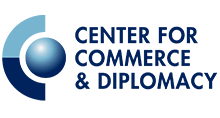This report provides a framework for policymakers to understand some of the interactions between climate change and trade in order to make policies that are emissions-efficient, economically efficient, and politically sustainable. The main findings of this report can be summarized as climate cooperation is impossible without trade coordination. Approaches to climate change have varied widely across and within nations and this heterogeneity has, unsurprisingly, resulted in tensions between nations. Each action addressing climate change introduces a price effect that changes economic behavior and leads to trade and competitive distortions. These inefficiencies ultimately undermine efforts to address climate change when they result in carbon leakage or restrict efficient production of climate-friendly products.
A solution to the climate crisis cannot exist without dialogue between policymakers and businesses to make market mechanisms work for climate cooperation and not against it. These market mechanisms include: taxes or fees on emissions, border adjustment measures, clean energy subsidies, financing, and international agreements. To reduce wrangling over the legality (WTO or otherwise) of each measure, countries must not only coordinate climate strategies, but also trade strategies, with the input of economic actors.
Coordination on climate will fail without including developing countries. The moral imperative to address developing country needs is evident—they suffer the most, but do the least harm. Furthermore, many advanced economy mitigation techniques will be regressive, as in the case of agriculture LUC recommendations. Beyond this moral imperative, our report shows that climate-induced supply chain shocks in developing countries have negative effects on financial markets in advanced economies. Climate adaptation and mitigation in developing countries is, thus, also an economic imperative for advanced economies and we recommend using border measures to finance it.
The recommendations in this report put political economy considerations front and center. For too long scientists and experts have advocated effective solutions to the crisis, but have met with resistance from business and policymakers alike. Any solution to the climate crisis must take seriously the necessary domestic actors that will support it. A quintessential example raised in the report is the proposed U.S. methane fee.1 It has the potential to be a useful climate policy tool, but will find little support with industry. But combining methane mitigation with a border adjustment to restore domestic competitiveness reduces opposition from industry.
The suggestion of coordination begs the question: “Among whom?” Coordination must be self-enforcing and requires that market mechanisms are at work. With this caveat, the best effort to address climate change will have the biggest tent possible. Using existing institutional infrastructure to accomplish climate and trade coordination presents the path of least resistance, as evidenced by the discussion of fishery subsidies.
The recommendations for trade coordination follow three broad themes: 1) Domestic taxes on emissions must be coupled with a border adjustment to restore industry competitiveness. 2) Proceeds from border adjustment measures should be used for climate finance in developing countries. 3) International coordination on climate and trade requires a multilateral approach using existing institutions. The implications for current policy discussions are summarized in Table 1. Further recommendations are included in each section of the report.
Recommended citation:
Bowen, R., Broz, J. L., Burney, J., Costello, C., Davidson, M. R., Li, H., & Rauch, J. E. (2021). The Role of Trade in Addressing Climate Change: Recommendations for Policies and Practices. UC San Diego Center for Commerce and Diplomacy Task Force on Climate and Trade. Retrieved from https://ccd.ucsd.edu/_files/2021-report_role-of-trade-in-addressing-climate-change.pdf

